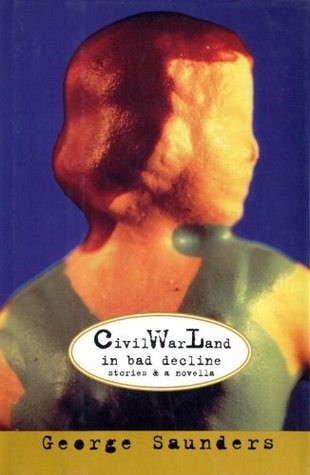More on this book
Community
Kindle Notes & Highlights
ISABELLE
Sometimes it’s damn hard. But I look after her and she squeals with delight when I come home, and the sum total of sadness in the world is less than it would have been.
THE 400-POUND CEO
have a sense that God is unfair and preferentially punishes his weak, his dumb, his fat, his lazy. I believe he takes more pleasure in his perfect creatures, and cheers them on like a brainless dad as they run roughshod over the rest of us. He gives us a need for love, and no way to get any. He gives us a desire to be liked, and personal attributes that make us utterly un-likable. Having placed his flawed and needy children in a world of exacting specifications, he deducts the difference between what we have and what we need from our hearts and our self-esteem and our mental health.
BOUNTY
But it’s really no decision. You grow up sleeping a few feet from someone, you see her little Catholic jumpers crumpled up in the corner, hear her wheezing with croup, huddle with her in the closet playing Bend the Hanger, and then you’re supposed to sit idly by while she’s sold into slavery?
That night I sleep a troubled sleep beside a fetid stream. I dream of Limbo, a tiny room full of dull people eternally discussing their dental work while sipping lukewarm tea.
What a beautiful country this must have been once, when you could hop in a coupe and buy a bag of burgers and drive, drive, drive, stopping to swim in a river or sleep in a grove of trees without worrying about intaking mutagens or having the militia arrest you and send you to the Everglades for eternity. I can’t help but feel I was born in the wrong age. People then were giants, royalty, possessed of unimaginable largesse and unprecedented power to do good.
Every now and then a kingfisher pulls something out of the muck and looks askance at it and eats it anyway.
“We ran the last true farm,” one of the kids screams at me. “Until the government put us out,” the wife says softly. She’s pretty the way a simple white house in a field is pretty. “Now we’re on the fucking lam,” says a toddler. Both parents smile fondly.
Which raised a second question, one that I now see as being at the heart of this book: Why is the world so harsh to those who are losing?
It was as if I’d been driving along a highway littered with broken-down cars, blithely unconcerned, then heard a clunk from under my own hood. What? I’d begun to think. Me, too, possibly? All of this made its way slantwise into this book, although I’m not sure how aware of it I was at the time.
I remember sitting in that office in my sad khakis, watching a storm approach—the darkening sky over the Rustic Village Apartments, the way the crap in the parking lot would start skittering around.
In retrospect I was lucky—lucky to have my lame, black-and-white, museumish idea of literature, in which it was always 1931, denied me. This sent me in search (in spite of myself) of a prose style that wasn’t full of shit given the life I was leading, a style that felt truly American—that took into account the Hemingway-Copland-Steinbeck-Ives America I loved (red, white, and blue bunting draped above a white-painted porch, a marching band playing in the distance) but also this new America in which I was just becoming a full participant: a place where paucity reduced a person, fear of failure
...more
I’d always loved Hemingway and all through grad school had been doing some version of a Hemingway imitation. If I got tired of that, I did a Carver imitation, then a Babel imitation. Sometimes I did Babel, if Babel had lived in Texas. Sometimes I did Carver, if Carver had worked (as I had) in the oil fields of Sumatra. Sometimes I did Hemingway, if Hemingway had lived in Syracuse, which always ended up sounding, to me, like Carver.


